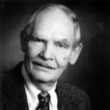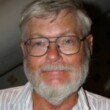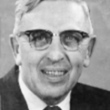The fountains of Paradise
Description
More Details
Similar Titles From NoveList
Similar Authors From NoveList
Published Reviews
Library Journal Review
Published in 1953, 1952, and 1979, respectively, this trio of novels follow Clarke's recurring theme of humans thrusting themselves into space and then not necessarily liking what they find. The religious images that run throughout Clarke's work also are present here. (c) Copyright 2010. Library Journals LLC, a wholly owned subsidiary of Media Source, Inc. No redistribution permitted.
Kirkus Book Review
Characteristic Clarke--and parts of it are excellent. Which parts? Not the style--the usual blur of amiable banalities. Not the characters, who resemble a crew of exceptionally bright, well-behaved, and sexless 15-year-olds. Not the social or historical extrapolations, which sound like cute rejoinders to a random selection of headlines. The only thing that keeps this going is the liveliness of its technical premise: from a satellite in stable geosynchronous orbit over the island of ""Taprobane,"" a team of scientists and engineers under the eager direction of aging Vannevar Morgan is trying to lower to Earth the incredibly thin and strong cables of a giant ""elevator,"" which will eventually make Earthside rocket launchings obsolete by ferrying up men and materials from the ground to the satellite. The lowest stage is still 600 kilometers from Earth when a sudden malfunction traps a team of researchers in a small chamber at the end of the cables; the rest of the script is Early Standard Cliffhanger. Not much of a novel, but the idea is one of Clarke's most captivating. Copyright ©Kirkus Reviews, used with permission.































